A batch of 110 Indian medical students, 94 of them from Jammu and Kashmir, arrived safely at New Delhi’s international airport on June 18, 2025, after a nerve-wracking escape from war-torn Iran. Named Operation Ganga, the evacuation brought relief to the families, which had spent sleepless nights following news of increasing tension between Iran and Israel.
The students — most of them studying at Tabriz Medical University in northwest Iran — endured frightening conditions as missile strikes and air raids jolted the region. Their suffering first began to intensify in early June when Iran’s major cities, such as Tabriz, faced in an Israeli raid aimed at nuclear sites. Students said they had taken cover in dormitories under a cacophony of ear-splitting blasts as the power cut out and glass shattered around them, intensifying a sense of terror. “We saw drones above and heard blasts around,” said a Kashmiri student from Anantnag, speaking at the airport. “It felt like the end.” The Indian Embassy in Tehran, working swiftly, organized their evacuation on June 16, eventually arranging their safe passage by bus to the border of Armenia and a chartered flight on Air India from Yerevan to Delhi via Dubai.
The return was bittersweet. Families, including many from Kashmir — in which more than 1,500 students study in Iran, attracted by affordable medical courses — rushed to Delhi, some traveling overnight in order to reunite with their children. A mother in Baramulla wept as she hugged her son, “I prayed every moment for this day.” These required the transferees to book their own tickets and travel costs, but the Jammu and Kashmir government, led by Chief Minister Omar Abdullah, issued free train tickets to students for the onward leg of the journey, after preliminary reports of the overcrowded bogies led to the swift addition of AC coach. The students thanked the Indian government, one from Srinagar gave credit to the relentless efforts of External Affairs Minister S. Jaishankar’s team. “The embassy staff were calling us every day, they were helping us because it’s just chaos,” she said.
The evacuation was not without hitches. Students became stranded for hours among delays at the airport in Dubai, with some saying they lost luggage with important documentation. But the great joy of escaping danger was more than compensating for these delays. The first phase of Operation Ganga primarily focused on evacuating students from Tabriz and Ardabil, but hundreds are still in Iran, regrouped in safer cities like Isfahan so that they can be evacuated again through Turkmenistan. The MEA has promised to persevere, instituting helplines and embassy assistance for marooned citizens.
The students’ return reflects India’s responsiveness to its diaspora during the current pandemic.For the 110 now home, the battle is shifting to recovery and to picking up where their padlocked dreams have left off, in thrall to a war they never conceived of fighting in.
On June 18, 2025, 110 Indian medical students, 94 of them from Jammu and Kashmir, safely landed at the international airport in New Delhi after a harrowing escape from war-torn Iran. Named Operation Ganga, the evacuation provided reprieve to families that had spent sleepless nights glued to news of mounting tensions between Iran and Israel.
Most of the students are enrolled at Tabriz Medical University in northwest Iran, and they faced fearsome conditions as missile strikes and air raids jolted the region. The start of their trauma actually occurred in early June when cities in Iran (including Tabriz) were targeted by Israeli military attacks on Iranian nuclear sites. Students spoke of huddling in dormitories with the sound of deafening blasts all around, power failures and shattered glass adding to the sense of panic. “We heard drones overhead and bangs in the vicinity,” said a student from Anantnag, in Kashmir, who was speaking at the airport. “It felt like the end.”The Indian Embassy in Tehran, acting quickly, facilitated their exit on June 16, getting them by bus to Armenia’s border, and then putting them on a charter Air India flight from Yerevan to Delhi via Dubai.
The return was bittersweet. Families, especially from Kashmir — where more than 1,500 students are enrolled in medical programs in Iran through affordable courses — rushed to Delhi, even traveling overnight to find their children. A mother in Baramulla wept as she hugged her son, saying: “I prayed every moment for this day.” Under chief minister Omar Abdullah, the Jammu and Kashmir was providing free train tickets to students for the next leg of their journey. though some early grumbling about overcrowding on the vehicles led to a fast choice to upgrade to air-conditioned carriages. The students thanked the Indian government, with a Srinagar girl saying she was thankful to External Affairs Minister S Jaishankar’s team who worked day in and day out. “Our embassy staff called us all the time, all the time, walking us through the chaos,” she said.
It was not a perfect evacuation. Delays at Dubai’s airport had students stranded for hours, and some students said they had lost luggage that contained vital paperwork. Still, the thumping joy of suddenly feeling secure was far greater than any of those disappointments. The first phase of the operation, Ganga, focused on students in Tabriz as well as Ardabil but hundreds continue to be in Iran, now in safe cities like Isfahan, to be evacuated in a later phase through Turkmenistan. The Ministry of External Affairs has promised to carry on, keeping helplines and embassies ready to assist stranded citizens.
The return of those students underscores India’s dedication to its diaspora in times of global crises. For those 110 now at home, their sights are set on recovery and getting back to their medical dream, proof that they can survive a war they never thought they would have to fight.

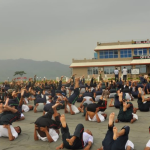
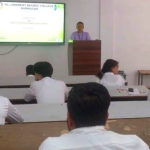
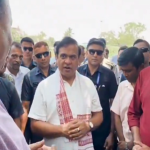

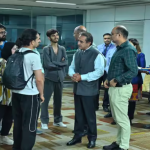
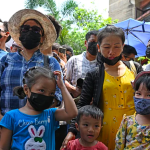
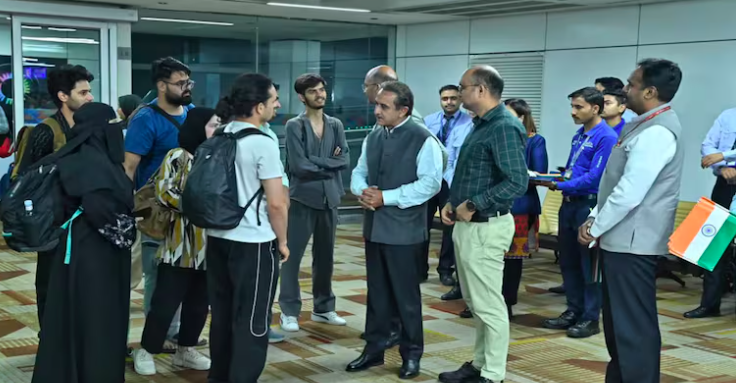
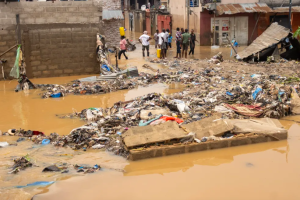


Add Comment